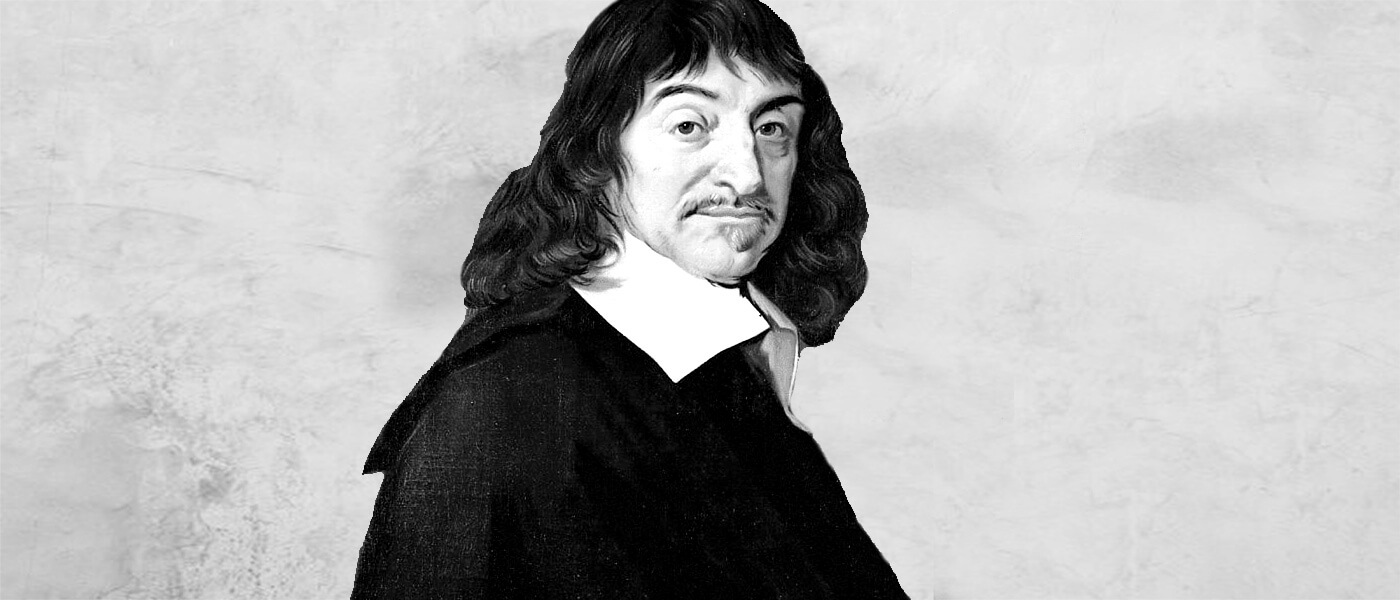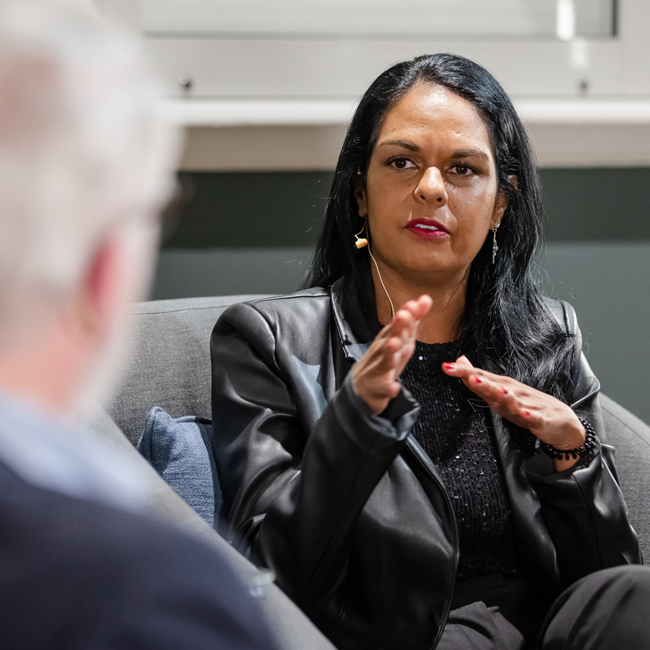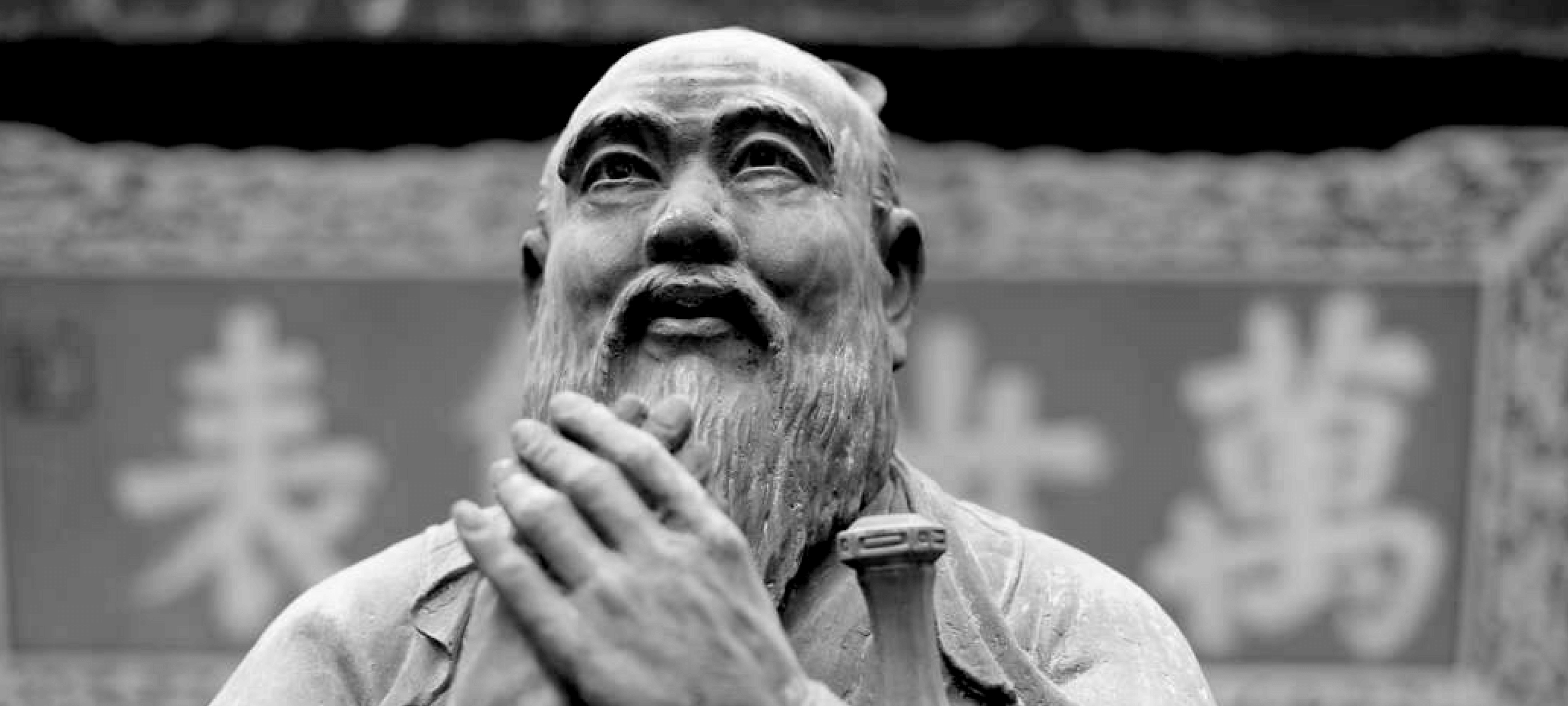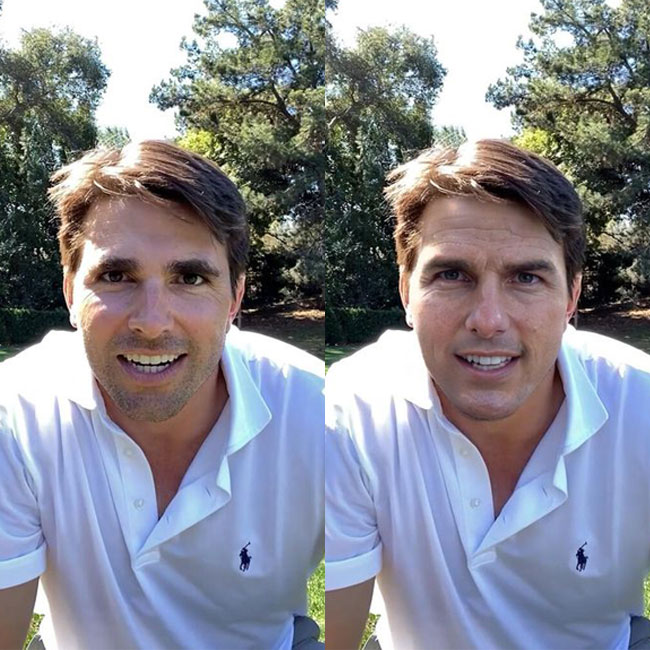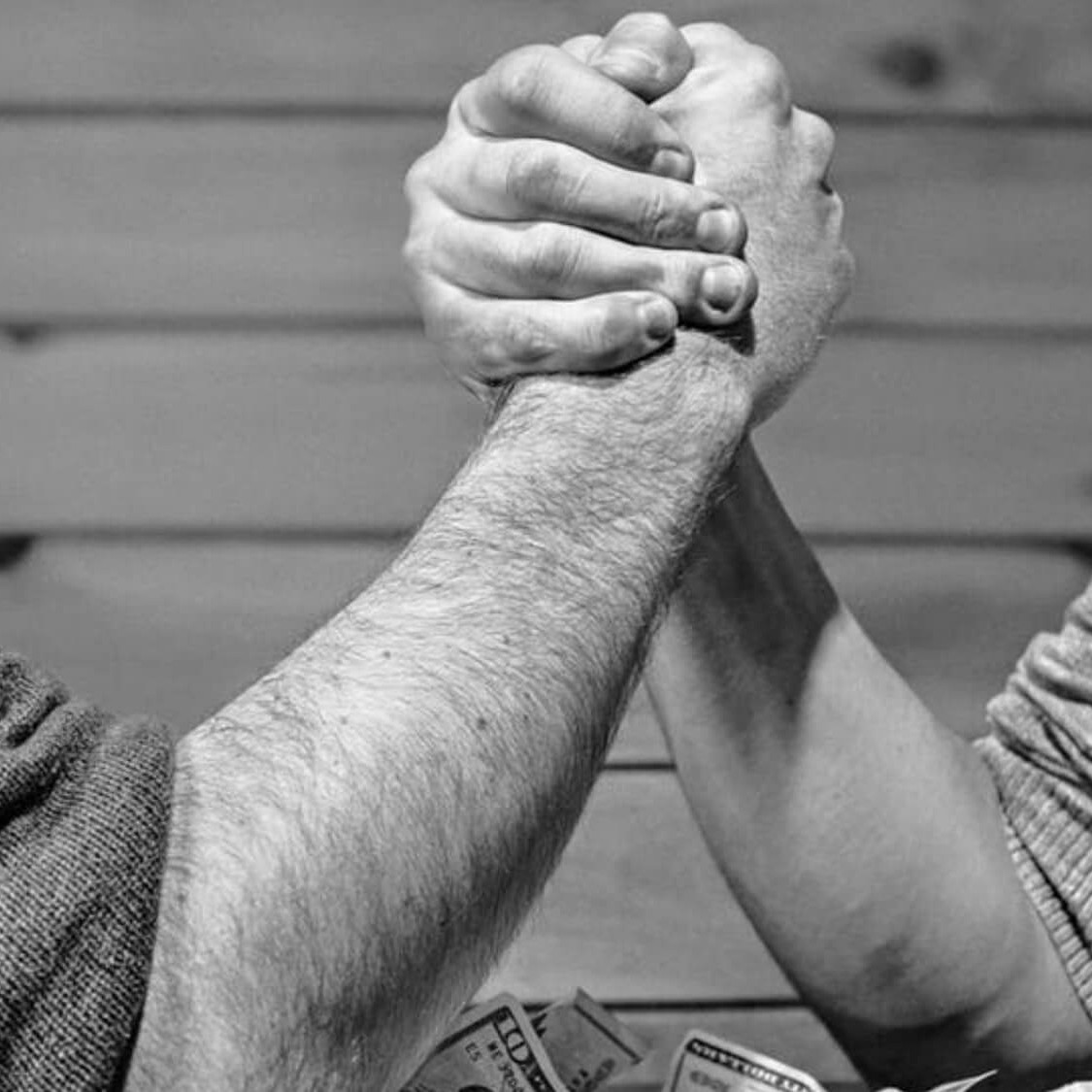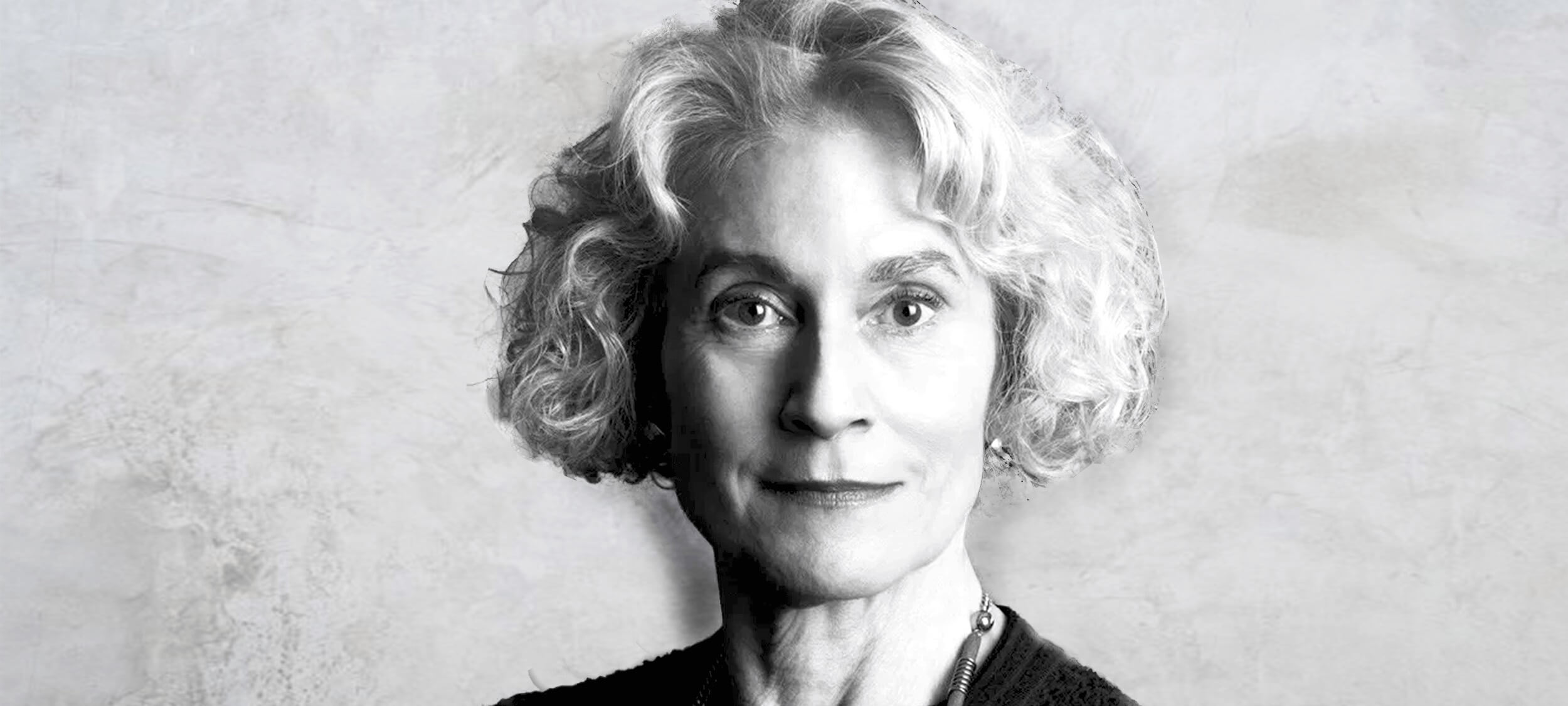Ethics Explainer: The Other

It’s sometimes said that if we were to find ourselves alone, stranded on a desert island, there’d be no need for us to think about ethics. It’s probably not true, strictly speaking, but it’s a useful way of demonstrating that an enormous amount of the work of ethics lies in puzzling out how we should make our way in a world jam-packed full of other people, all of whom are owed the same kind of respect we are.
As we become preoccupied with the busy, everydayness of our lives, we can often take the people around us for granted. In some cases, this mean we fail to be polite to them, or be grateful for the things they do to help us. In more extreme cases, we can objectify or commodify the people around us – treating them as though they were just tools for our own purposes, rather than people with rights and goals of their own. This runs against the moral imperative advocated by German philosopher Immanuel Kant to never treat people as a mere means to our own ends.
A common solution to this moral problem is to try to remind people of our ‘shared humanity’. We are advised to show empathy, imagine how other people might experience our words and actions and put ourselves in other people’s shoes. These strategies all boil down to one basic belief: if we can just realise how similar we are to the people around us, we’ll stop treating them poorly. For example, the Scottish philosopher David Hume believed sympathy was the foundation of ethics.
However, we should ask seriously how accessible other people’s minds are to us. Can a middle-aged white man really put himself in the shoes of a Rohingan woman being persecuted because of her faith, responsible for three children, none of whom have eaten in days? Perhaps not, and so it’s a problem if we argue that our moral concern needs to be grounded in a recognition of what we have in common. Because sometimes, we have nothing in common.
The Other is a term used to capture the ways other people are different from us. It’s also used to describe the people who we keep distant from us because we decide they’re not like us. The process of Othering occurs when we turn fellow humans into abstract entities we can distance ourselves from or treat as less-than-human.
We often think of our social relationships in terms of groups – we have an ‘in group’ and an ‘out group’. These groups are distinguished by who we identify ourselves with and who we identify ourselves against. Othering happens when we treat the members of the out group – the people we don’t identify with – as though they were less important than the members of our in group.
Philosopher Simone de Beauvoir thought “Otherness is a basic category of human thought”. As soon as we think about what something is, we think about the opposite – the Other. However, natural or not, Othering isn’t a neutral process – it tends to lead to the mistreatment of the people we decide are Other.
Once we identify the Other it becomes easier to justify treating them in ways we wouldn’t treat a fellow person. We can abuse, exploit or persecute them without feeling guilty. Othering was a factor in enabling the Holocaust, the slave trade and the Rwandan genocide. In each case, the victims’ humanity became invisible because people focussed on what made them different.
Given this, it would seem like the solution to Othering would be, as David Hume suggests, to focus on what we have in common rather than what sets us apart. But this isn’t a perfect solution either, because the process of distinguishing who we are from who we’re not is part of the way we develop our identity.
By focussing only on what is similar between us and other people, we lose an important tool in discovering our personal identity. Oftentimes it’s our differences that make us unique.
When we look at people as being ‘like us’, it can help us to relate but it can also be a little bit narcissistic. Instead of looking on the Other as someone unique, complicated and different, we treat them like a mirror. We try to find ourselves in other people instead of trying to find what defines them as them.
The philosopher Emmanuel Levinas thought process of engaging with the Other and acknowledging the differences between us and them was the basis of ethics. All our theories, concepts and ideas about what to do and how to live start by acknowledging that we must engage with other people who are different from us. Levinas believed that this otherness – which he called alterity – was something to celebrate. Rather than looking for commonality to ground our moral concern, we should recognise that another person is a universe of mystery to us. Something to fill us with awe, care and concern.
Encountering the Other is difficult. The Other challenges our way of doing things, demands our attention and holds us responsible for our actions. Their presence forces us to rethink our understanding of the way the world works. It’s much easier to overlook that difference by looking for similarities or make those differences seem evil than it is to genuinely engage with them. Yet this is exactly what Levinas wanted us to do.
In fact, Levinas wanted us to look the Other in the face. In doing so, we look upon the face of someone completely different from us. We also start to recognise our ethical responsibility toward them, which is a really simply one: don’t kill them.
Think of all the films and stories where someone is about to commit an act of murder until at the last minute they see the eyes of the person they’re going to kill. Suddenly, they can’t do it. One explanation for these changes of heart is that in looking into the Other’s face, these people realise their ethical responsibilities.
This philosophy of the Other is powerful because it encourages us to rethink our attitude toward difference. It acknowledges there are real and sometimes insurmountable differences between us but tells us that’s OK. Instead of getting caught up searching for what we have in common or stigmatising the things that set us apart, we should be open to learning from every individual we come across – no matter how much or how little of ourselves we see in them.
Ethics in your inbox.
Get the latest inspiration, intelligence, events & more.
By signing up you agree to our privacy policy
You might be interested in…
Explainer
Relationships
Ethics Explainer: Ad Hominem Fallacy
Explainer
Relationships, Society + Culture
Ethics Explainer: Beauty
LISTEN
Relationships, Society + Culture
Little Bad Thing
Opinion + Analysis
Health + Wellbeing, Relationships
Rationing life: COVID-19 triage and end of life care
BY The Ethics Centre
The Ethics Centre is a not-for-profit organisation developing innovative programs, services and experiences, designed to bring ethics to the centre of professional and personal life.
Ethics Explainer: Akrasia

If you’ve ever helped a child to master toileting, you’ll know of the moment where your patience and understanding expires.
It’s somewhere between the sixth wet bed and the poo stains on the walls, where you beg, implore the child to explain. “You know how to use the toilet, why don’t you just do it?!”
Well, park that frustration friend, because if the ancient Greek philosopher Aristotle is to be believed, we’re all a bit like that child, smearing shit on the walls despite knowing better. Aristotle believed in something he called akrasia – which is usually translated as ‘weakness of the will’, but I prefer to translate it as ‘incontinence’.
That’s right, Aristotle thought most of us had, at one stage or another, a leaky ethical bladder. We know what’s right and wrong; we know how we should act, and yet we wet ourselves rather than actually doing it.
This happens, according to Aristotle, for two reasons. First, passion. There are times when our emotions, ego, excitement or panic get the better of us, and our reason disappears. This can lead us to violence, cruelty, thoughtlessness or any number of things that we know are wrong. Like a toddler wetting themselves in fear or excitement, our moral restraint and discipline is overwhelmed by the emotion of the moment.
This form of akrasia often feels like being ‘swept up’ in the moment. We suddenly find our fists clenched, we find ourselves unable to swallow a hurtful thought – we are, for all intents and purposes – not in control. However, we’re responsible for our lack of control. According to most scholars who believe akrasia is a thing, we lose control because we haven’t worked hard enough to master ourselves. “I’m sorry I said that, I totally lost control,” is an explanation here – not an excuse.
The second way we can be overwhelmed is weakness. Sometimes we are the child who just doesn’t make it to the bathroom in time and has an accident on the floor. Morally, we know that we should try to minimise carbon emissions and that means we should get out of our pyjamas and walk the five minutes to pick up takeaway. But wouldn’t it be faster, and easier, to drive? Here, it’s clear what should be done. It’s just we don’t have the strength of will to do it.
Akrasia of this kind is different to the ‘heat of the moment’ stuff we discussed above. In this case, the little voice in our heads is nagging at us: ‘you should say something’, ‘you shouldn’t be doing this’, ‘that’s your son’s Easter chocolate Matt, you shouldn’t be eating it’… stuff like that. Here, we’re perfectly aware of our failing and watch ourselves fail, seemingly incapable of doing otherwise.
However, there are some who believe akrasia is actually impossible. They reject outright the idea that someone can know what is right to do and also refuse to do that thing. Here’s how their argument looks:
- Every choice people make is made because they see something good in that action.
- Therefore, nobody willingly chooses to do something bad.
- When people appear to be choosing to do something bad, it is because they think that bad thing is, in some way, good.
- Bad things happen because people are mistaken about what’s good.
The belief behind akrasia is that we can know – really know – what’s good and shit the bed when it comes to actually doing it. But would someone who really understood why we need to speak up against abuses of power ever remain silent? Critics of akrasia think not. They think the reason why someone wouldn’t speak up against a bully is because they’ve decided that in this situation, they momentarily believe that the good of personal safety trumps the good of justice. That is, the source of unethical behaviour is in mistaken beliefs, not in weak character.
However, this kind of reasoning comes close to committing the ‘No True Scotsman’ fallacy. The This fallacy, named is named for the Scottish-themed anecdote used to demonstrate it, is a kind of circular reasoning. Here’s how it looks:
- Claim: All Scots are brave and never flee battle
- Counter-evidence: But MacDougall is a Scot and he fled battle yesterday!
- Denial of evidence: MacDougall isn’t a true True Scots are brave and never flee battle.
The No True Scotsman is a way of shifting the goal posts so counterfactuals can’t actually disprove your claim. They are just reworked to support it further.
Critics of akrasia seem to make a similar claim:
- Claim: People do the wrong thing because they don’t know what’s right
- Counter-evidence: Yesterday I knew I should have returned the wallet I found with the cash still inside, but I took the cash and then returned the wallet
- Denial of evidence: You didn’t truly know that’s what you should have done. Otherwise, you would have done it.
This might seem like an academic dispute. And that’s because it is. But it’s also one that matters. Being able to identify the source of ethical failure is crucial if we’re going to prevent it. If ethical failures are problems of knowing and understanding what is good and why it’s good, then the solution is going to involve a lot of education.
If instead, ethical failures are connected to weakness of the will, then our ethics training needs to look a bit more like toilet training: getting us to identify the cues, knowing what to do ahead of time and having the strength to hold on, even when our will seems like it’s going to give way.
Ethics in your inbox.
Get the latest inspiration, intelligence, events & more.
By signing up you agree to our privacy policy
You might be interested in…
Opinion + Analysis
Politics + Human Rights, Relationships, Society + Culture
Punching up: Who does it serve?
Big thinker
Relationships
Big Thinker: René Descartes
Opinion + Analysis
Relationships
There is more than one kind of safe space
Opinion + Analysis
Politics + Human Rights, Relationships, Society + Culture
In the face of such generosity, how can racism still exist?
BY Matthew Beard
Matt is a moral philosopher with a background in applied and military ethics. In 2016, Matt won the Australasian Association of Philosophy prize for media engagement. Formerly a fellow at The Ethics Centre, Matt is currently host on ABC’s Short & Curly podcast and the Vincent Fairfax Fellowship Program Director.
BY The Ethics Centre
The Ethics Centre is a not-for-profit organisation developing innovative programs, services and experiences, designed to bring ethics to the centre of professional and personal life.
Ethics Explainer: Consent

In many areas of life, being able to say “yes”, to give consent, and mean it, is crucial to having good relationships.
Business relationships depend on it: we need to be able to give each other permission to make contracts or financial decisions and know that the other person means it when they do.
It’s crucial to our relationships with experts who we rely on for critical services, like doctors, or the people who manage our money for us: we need to be able to tell them our priorities and authorise the plans they devise in light of those priorities. And romantic relationships would be nothing if we couldn’t say “yes” to intimacy, sexuality, and the obligations we take on when we form a unit with another person.
Giving permissions with a “yes” is one of our most powerful tools in relationships.
Part of that power is because a “yes” changes the ethical score in a relationship. In all the examples we’ve just seen, the fact that we said “yes” makes it permissible for another person to do something to or with us – when without our “yes”, it would be seriously morally wrong for them to do that very same thing. This difference is the difference of consent.
Defining Consent
Without consent, taking someone’s money is theft: with consent, it’s an investment or a gift. Without consent, entering someone’s home is trespass. With consent, it’s hospitality. Without consent, performing a medical procedure on someone is a ghoulish type of battery. With it, it’s welcome assistance.
The same action looks very morally different depending on whether we have said “yes”. This has led some moral philosophers to remark that consent is a kind of “moral magic”.
Interestingly, there are times when this moral magic can be cast even when a person has not said “yes”. In the political arena, for instance, many philosophers think it doesn’t take very much for you to have consented to be governed. Simply by using roads, or not leaving the territory your government controls, you can be said to have consented to living under that government’s laws.
The bar for what counts as consent is set a lot higher in other areas, like sexual contact or medical intervention. These are cases when even saying “yes” out loud might not be enough to cast the “moral magic” of consent: we can say “yes”, but still not have made it okay for the other person to do what they were thinking of doing.
For instance, if a person says “yes” to sex or to get a tattoo because they are drunk, at gunpoint, ill-informed, mistaken, or simply underage, most ethicists agree it would be wrong for a person to do whatever they have said “yes” too. It would be wrong to give them the tattoo or try to have sex with them, because even though they’ve said “yes”, they haven’t really given consent.
This leads philosophers to a puzzle. If saying “yes” alone isn’t enough for the moral magic of consent, what is?
Do we need the person to have a certain mental state when they say “yes”? If so, is it the mental state, the combination, or just the “yes” that really matters? This is a long and wide-ranging debate in philosophical ethics with no clear answer.
Free and Informed
Recently ethicist Renee Bolinger has argued that the real question is not what consent is, but how best to avoid the “moral risk” of doing wrong. She argues that in this light, we can see that what matters is not what consent is, but what our rules around consent should be, and those rules should consider consent a ‘performance’, or an action, such as speaking or signing something.
Some policy efforts have tried to come up with “rules about consent” that codify when and why a “yes” works its moral magic. There is the standard of “free and informed” consent in medicine, or “fair offers” in contracts law. Ethicists, however, worry that these restrictions are under-described, and simply push the important questions further down the line. For instance, what counts as being informed? What information must a person have, for their “yes” to count as permission?
We might think that knowing about the risks is important. Perhaps a person needs to know the statistical likelihood of bad outcomes. However, physicians know that people tend to over-prioritise relatively small risks, and in emotional moments can be dissuaded from a good treatment plan by hearing of “a three in a million” risk of disaster. So would knowledge of risk be sufficient for informed consent, or do we need to actually know the probability?
There is a final important question for our thinking about consent. Whatever consent is, are there actions you cannot consent to?
A famous court case called R v Brown established in 1993 that some levels of bodily harm are too great for a person to consent to, whether or not they would like to experience that harm. In any area of consent – medicine, financial, sexual, political – this is an important and open question.
Should people be able to use their powers of consent to do harm to themselves? The answer may depend on what we mean by harm.
Ethics in your inbox.
Get the latest inspiration, intelligence, events & more.
By signing up you agree to our privacy policy
You might be interested in…
Opinion + Analysis
Business + Leadership
Volt Bank: Creating a lasting cultural impact
Opinion + Analysis
Business + Leadership, Relationships
How the Canva crew learned to love feedback
Opinion + Analysis
Business + Leadership
Why purpose, values, principles matter
Opinion + Analysis
Business + Leadership
Susan Lloyd-Hurwitz on diversity and urban sustainability
BY The Ethics Centre
The Ethics Centre is a not-for-profit organisation developing innovative programs, services and experiences, designed to bring ethics to the centre of professional and personal life.
Ethics Explainer: Ethical Infrastructure

Ethics Explainer: Ethical Infrastructure
ExplainerBusiness + Leadership
BY The Ethics Centre 27 OCT 2020
When we think about the kinds of things a society needs for its survival and flourishing, we tend to begin with the basic necessities.
A society needs enough food to feed everyone, road and transport infrastructure, housing. It needs laws to manage how people treat one another, systems of government to make decisions. In a modern society, complex communications and other forms of technical infrastructure are required.
Each of these this is a component of a society’s infrastructure. Each is essential to the common good, survival and wellbeing of a society. However, just as essential for the wellbeing of a society is ethical infrastructure – the formal and informal means by which society regulates the use of power by both public and private institutions to ensure it serves the common good.
The term ethical infrastructure has been used in a number of countries around the world, including The United States of America. However, it has typically been used to refer to systems of control, compliance and risk management. There is an opportunity to expand the idea of ethical infrastructure so it does not simply refer to the basic rules of public service.
A society can have a clear set of rules and principles about appropriate spending, disclosure of interests and so on, and still not have systems and institutions that serve the common good. We need only look at the United States for proof of this.
This is why it is better to consider ethical infrastructure to be a collection of institutions, systems, norms and processes that we use to ensure not only that society is operating effectively, but that it is operating ethically.
To understand why this is necessary, consider the fact that there is a person or group who is responsible for, and in control of, each piece of social, physical or digital infrastructure we have and need. This control confers power. The power to give or deny essential resources to some groups, to favour some people over others or to mismanage those resources due to incompetence, laziness or selfishness.
Handing this kind of power over to somebody without some assurance they will use it well would be reckless and foolish. Indeed, some of the most influential voices in Western political philosophy – Thomas Hobbes, John Locke, Jean-Jacques Rousseau and John Rawls – have argued that it’s only when the powerful are willing to act in the interests of those they are meant to serve that they should have any power at all. Ethical infrastructure refers to the means by which a society can ensure power is exercised in the common interest, and take meaningful action when it is not.
A clear example of a piece of ethical infrastructure would be laws, policies and systems protecting the actions of whistleblowers, who draw attention to unethical behaviour – often by the powerful. Many organisations lack appropriate systems and processes for employees to flag ethical issues, and even if they have these processes, there are often cultural factors that mean those processes don’t have the results they should. This can drive some whistleblowers to look for other avenues outside their organisation, but often do not feel supported – practically or legally – in doing so.
Thinking about an issue like this as a challenge of ethical infrastructure helps us see it as a systemic issue. It is not simply a matter of new laws. We also need to normalise new ways of thinking about dissenting, concerned or outspoken staff within our organisations.
We need to ensure individuals have the training and support they need to identify and draw attention to ethical issues and we must have appropriate accountability in cases where it appears important information has been covered up or kept secret. This complex and powerful network of norms, policies, institutions, processes and people is a society’s ethical infrastructure.
Each aspect of a society’s infrastructure is designed to allow its citizens to flourish: provided with the means to live prosperously, confidently, safely and well. Ethical infrastructure serves this goal in two ways. First, it ensures the other aspects of our infrastructure are serving everyone’s needs, and second, it gives people the confidence to take risks, act creatively and magnanimously, trust in their neighbours, leaders and institutions and feel confident in theirs and their loved ones futures.
Because without this, no amount of sophisticated infrastructure will secure what we’re all searching for: a life worth living.
Ethics in your inbox.
Get the latest inspiration, intelligence, events & more.
By signing up you agree to our privacy policy
You might be interested in…
Opinion + Analysis
Business + Leadership, Health + Wellbeing
Is your workplace turning into a cult?
Opinion + Analysis
Business + Leadership
Is it fair to expect Australian banks to reimburse us if we’ve been scammed?
Opinion + Analysis
Business + Leadership
Productivity isn’t working, so why not try being more ethical?
Opinion + Analysis
Business + Leadership
Managing corporate culture
BY The Ethics Centre
The Ethics Centre is a not-for-profit organisation developing innovative programs, services and experiences, designed to bring ethics to the centre of professional and personal life.
Ethics Explainer: Ethical judgement and moral intuition

Ethics Explainer: Ethical judgement and moral intuition
ExplainerRelationships
BY Matthew Beard The Ethics Centre 28 JUL 2020
Have you ever seen a situation that seems flatly wrong, but when asked to explain why you find yourself struggling for words? Perhaps you’ve got a strong sense that something is wrong – an immediate, powerful instinct about what should or shouldn’t happen. In ethics, we refer to these as moral intuitions.
Moral intuitions go by a number of different names. Some of us talk about ‘gut instinct’ or whether something passes the ‘sniff test’. Both terms suggest that there is some strong, basic belief about right and wrong that we can use to ground our judgements.
The problem is, despite the speed and strength of these intuitions, they are only as valuable as their source. Our intuitions can come from a range of sources: personal and family history, unconscious biases, custom, culture or a strong, stable and well-founded sense of what’s right.
Opinions differ on what we should do with our moral intuitions. Should we follow them, trusting them as a different kind of knowledge that draws on subconscious, non-rational and emotional cues? Should we ignore them, seeing them as irrational, unjustifiable claims about what’s right or wrong? Or should we treat them as one piece of evidence among many when we’re making a decision?
Resolving these questions requires us to work out what kind of intuitions we’re having. Some of our judgements about ethics can be based in a sense of disgust or ideas about what’s taboo (for instance, thinking about lab-grown meat), they can be the product of psychological biases like availability bias or halo effect, or social prejudices like racism, sexism, ableism or class-based moralities.
However, other intuitions may be based in our emotional response to a situation. Many of our emotions can reflect and inform our rational judgements. If something makes us angry, that’s information worthy of considering. If something makes us proud, that’s data we can use to help shape an opinion. Standing alone, ‘this made me feel sick’ isn’t sufficient information to form a moral judgement. But, the fact that learning about or witnessing something made you feel physically ill also isn’t something you should ignore lightly.
From the Nazis to ISIS, history is littered with groups who have encouraged their members to dismiss the evidence of their minds and bodies – such as feeling of disgust or shame at committing acts of murder – in order to serve some ‘higher’ goal. Dismissing the morally informative role of emotions can be used as a tool to pave the way to atrocity.
Whilst emotions alone should not be taken as sufficient for forming judgement, some believe there are kinds of intuitions that can, in and of themselves, reveal something ethically important to us.
For instance, we might have an intuition that all people are to be treated fairly, that it is wrong to intentionally harm an innocent person for no reason or that all people are to be treated with dignity. These are beliefs that moral intuitionists claim to be self-evident. These ideas don’t need to be justified or proven true, they just are. A moral intuitionist would argue that any person who disputes them is simply wrong.
Of course, not everyone accepts that there are self-evident principles on which to build an ethical system. These people, who are often associated with a philosophical school of thought known as rationalism, prioritise analytic reason, and hold that intuitions should be ignored. The only basis on which we should make ethical judgements is a rationally constructed argument. If, for instance, we think all people should be treated equally, we should make an argument to that effect. If we can’t, we don’t have good reasons to hold that belief.
What intuitionists and rationalists agree on is that making an ethical judgement is distinct from having a moral intuition. Our strong, immediate judgements about a situation are rarely – if ever – enough for us to make a decent appraisal of a situation.
However, the rationalist goal of eliminating emotion and intuition from the realm of ethical judgement is also false. Critical feminist and race scholars have highlighted the way that rationalists tend to paint a male, Western approach to thinking as a ‘universal’ rationality. In doing so, they tend to understate and invalidate other knowledge traditions and sources of moral judgement, including emotion.
For example, psychologist Laurence Kohlberg used a rationalist model of ethical decision-making to develop a stage theory of moral development. He thought rational, theoretical decision-making was more mature than decisions based on emotion, care and relationships. As a result, he concluded that boys tended to be more morally mature than their same-age female peers.
It took his student, feminist scholar Carol Gilligan, to point out that not only was Kohlberg’s assumption about rationality unjustified (it ignored, for example, the work of scholars like David Hume), it painted the difference between male and female moral reasoning as a deficiency in women rather than as a simple difference.
Perhaps we should take guidance from both rationalists and intuitionists. From the rationalist we can learn the understanding that our first judgement of a situation should not be our last. However, intuitionists remind us not to dismiss our initial judgements out of hand, but to interrogate and understand them. That way, next time, our intuitions will be a little closer to the mark.
You can contact The Ethics Centre about any of the issues discussed in this article. We offer free counselling for individuals via Ethi-call; professional fee-for-service consulting, leadership and development services; and as a non-profit charity we rely heavily on donations to continue our work, which can be made via our website. Thank you.
Ethics in your inbox.
Get the latest inspiration, intelligence, events & more.
By signing up you agree to our privacy policy
You might be interested in…
Opinion + Analysis
Politics + Human Rights, Relationships, Society + Culture
Punching up: Who does it serve?
Opinion + Analysis
Health + Wellbeing, Relationships, Science + Technology
Parent planning – we should be allowed to choose our children’s sex
Opinion + Analysis
Politics + Human Rights, Relationships
A new era of reckoning: Teela Reid on The Voice to Parliament
Opinion + Analysis
Relationships
Violent porn denies women’s human rights
BY Matthew Beard
Matt is a moral philosopher with a background in applied and military ethics. In 2016, Matt won the Australasian Association of Philosophy prize for media engagement. Formerly a fellow at The Ethics Centre, Matt is currently host on ABC’s Short & Curly podcast and the Vincent Fairfax Fellowship Program Director.
BY The Ethics Centre
The Ethics Centre is a not-for-profit organisation developing innovative programs, services and experiences, designed to bring ethics to the centre of professional and personal life.
Ethics Explainer: Agape

How many people do you think we can love? Can we love everyone? Can we love everyone equally? The answers to these questions obviously depend on what the nature of this kind of love is, and what it looks like or demands of us in practice.
“Love is all you need”
Agape is a form of love that is commonly referred to as ‘neighbourly love’, the love ethic, or sometimes ‘universal love’. It rests on the idea that all people are our ‘brothers and sisters’ who deserve our care and respect. Agape invites us to actively consider and act upon the interests of other people, in more-or-less the same proportion as you consider (and usually act upon) your own interests.
We can trace the concept back to Ancient Greece, a time in which they had more than one word to describe various kinds of love. Commonly, useful distinctions can be made between eros, philia, and agape.
Eros is the kind of love we most often associate with romantic partners, particularly in the early stages of a love affair. It’s the source of English words like ‘erotic’ and ‘erotica’.
Philia generally refers to the affection felt between friends or family members. It is non-sexual in nature and usually reciprocal. It is characterised by a mutual good will that manifests in friendship.
Although both eros and philia have others as their focus, they can both entail a kind of self-interest or self-gratification (after all, in an ideal world our friends and lovers both give us pleasure).
Agape is often contrasted to these kinds of love because it lacks self-interest, self-gratification or self-preservation. It is motivated by the interest and welfare of all others. It is global and compassionate, rather than focussed on a single individual or a few people.
Another significant difference between agape and other forms of love is that we choose and cultivate agape. It’s not something that ‘happens’ to us like becoming a friend or falling romantically in love, it’s something we work toward. It is often considered praiseworthy and holds the lover to a high moral standard.
Agape is a form of love that values each person regardless of their individual characteristics or behaviour. In this way it is usually contrasted to eros or philia, where we usually value and like a person because of their characteristics.
Agape in traditional texts
The concept of agape we now have has been strongly influenced by the Christian tradition. It symbolises the love God has for people, and the love we (should) have for God in return. By extension, if we love our ‘neighbours’ (others) as we do God, then we should also love everyone else in a universal and unconditional manner, simply because they are created in the likeness of God.
The Jesus narrative asks followers to act with love (agape) regardless of how they feel. This early Christian ethical tradition encourages us to “love thy neighbour as thyself”. In the Buddhist tradition K’ung Fu-tzu (Confucius) similarly says, “Work for the good of others as you would work for your own good.”
Another great exponent of this ethic of love is Mahatma Gandhi who lived, worked, and died to keep this transcendent idea of universal love alive. Gandhi was known for saying, “Hate the sin, love the sinner”.
Advocates for non-violent resistance and pacifism that include Gandhi, Martin Luther King, Jr., and John Lennon and Yoko Ono also refer to the power of love as a unifying force that can overcome hate and remind us of our common humanity, regardless of our individual differences.
Such ideology rests on principles that are resonant with agape, urging us to love all people and forgive them for whatever wrongs we believe they have committed. In this way, agape sets a very high moral standard for us to follow.
However, this idea of generalised, unconditional love leaves us with an important and challenging question: is it possible for human beings to achieve? And if so, how far may it extend? Can we really love the whole of humanity?
Ethics in your inbox.
Get the latest inspiration, intelligence, events & more.
By signing up you agree to our privacy policy
You might be interested in…
Opinion + Analysis
Relationships, Society + Culture
Community is hard, isolation is harder
Explainer
Health + Wellbeing, Relationships
Ethics Explainer: Tolerance
Opinion + Analysis
Relationships
Ethics Explainer: Peter Singer on charitable giving
Opinion + Analysis
Business + Leadership, Relationships
So your boss installed CCTV cameras
BY Dr Laura D’Olimpio
Dr Laura D’Olimpio is senior lecturer in philosophy of education at the University of Birmingham, UK, and co-edits the Journal of Philosophy in Schools.
BY The Ethics Centre
The Ethics Centre is a not-for-profit organisation developing innovative programs, services and experiences, designed to bring ethics to the centre of professional and personal life.
Ethics Explainer: Ethics of Care

Ethics of care is a feminist approach to ethics. It challenges traditional moral theories as male-centric and problematic to the extent they omit or downplay values and virtues usually culturally associated with women or with roles that are often cast as ‘feminine’.
The best example of this may be seen in how ethics of care differs from two dominant normative moral theories of the 18th and 19th century. The first is deontology, best associated with Immanuel Kant’s ethics. The second is consequentialism, best associated with Jeremy Bentham’s utilitarianism and improved upon by John Stuart Mill.
Each of these moral theories require or encourage the moral agent to be unemotional. Moral decision-making is expected to be rational and logical, with a focus on universal, objective rules. In contrast, ethics of care defends some emotions, such as care or compassion, as moral.
On this view, there isn’t a dichotomy between reason and the emotions, as some emotions can be reasonable, morally appropriate or even helpful in guiding good decisions or actions. Feminist ethics also recognises that rules must be applied in a context, and real life moral decision-making is influenced by the relationships we have with those around us.
Instead of asking the moral decision-maker to be unbiased, the caring moral agent will consider that one’s duty may be greater to those they have particular bonds with, or to others who are powerless rather than powerful.
In a Different Voice
Traditional proponents of feminist care ethics include 20th century theorists Carol Gilligan and Nel Noddings. Gilligan’s influential 1982 book, In a Different Voice, claimed that Sigmund Freud’s theory of psychoanalysis and Lawrence Kohlberg’s theory of moral development were biased and male-oriented.
On these dominant psychological accounts of human development, male development is taken as standard, and female development is often judged as inferior in various ways.
Gilligan argued if women are ‘more emotional’ than men, and pay more attention to relationships rather than rules, this is not a sign of them being less ethical, but, rather, of different values that are equally valuable. While Gilligan may have deemed these differences to be ‘natural’ and associated with sex rather than gender, these differences may well have been socially constructed and therefore the result of upbringing.
How might the ethics of care theorist resolve the classical ‘Heinz’ dilemma: Should a moral agent steal the required medicine he cannot afford to buy to give to his very sick wife, or stick to the rule ‘do not steal’, regardless of the circumstances? A tricky dilemma, to be sure, as there are competing duties here (namely, a positive duty to help those in need as well as a negative duty to avoid stealing).
Arguably, the caring person would place the relationship with one’s spouse above any relationship they may or may not have with the pharmacist, and care or compassion or love would outweigh a rule (or a law) in this case, leading to the conclusion that the right thing to do is to steal the medicine.
It’s worth noting that a utilitarian might also claim a moral agent should steal the medicine because saving the wife’s life is a better outcome than whatever negative consequences may result from stealing. However, the reasoning that leads to this conclusion is based on unemotional weighing of costs and benefits, rather than a consideration of the relationships involved and asking what love might demand.
Writing at the same time as Gilligan, Noddings also defended care as a particular form of moral relationship. She asserted that caring was “ethically basic” to humans and that it can be seen in children’s behaviour. While Noddings does not rule men out from being caring, it is usually women who feature in her examples of caregivers.
Noddings, like Gilligan, prioritises relationships that are between specific individuals in a particular context as the basis for ethical behaviour. This stands in contrast to the idea that morality involves following universal, abstract or purely logical moral rules.
Who cares?
Ethics of care has been influential in areas like education, counselling, nursing and medicine. Yet there have also been feminist criticisms. Some worry that it maintains a sexist stereotype and encourages or assumes women nurture others, even while society fails to value carers as they should.
Noddings and Gilligan both argue against this, saying that the capacity for care is a general human strength, and while it is empowering to acknowledge it as a positive capacity in women, it should be encouraged regardless of gender.
Ethics in your inbox.
Get the latest inspiration, intelligence, events & more.
By signing up you agree to our privacy policy
You might be interested in…
Opinion + Analysis
Health + Wellbeing, Relationships
This isn’t home schooling, it’s crisis schooling
Big thinker
Politics + Human Rights, Relationships
Big Thinker: Confucius
Explainer
Relationships
Ethics Explainer: Hope
Opinion + Analysis
Relationships, Science + Technology, Society + Culture
5 things we learnt from The Festival of Dangerous Ideas 2022
BY Dr Laura D’Olimpio
Dr Laura D’Olimpio is senior lecturer in philosophy of education at the University of Birmingham, UK, and co-edits the Journal of Philosophy in Schools.
Ethics Explainer: Plato's Cave

Plato’s allegory of the cave is a classical philosophical thought experiment designed to probe our intuitions about epistemology – the study of knowledge.
This story offers the reader an insight into one of Plato’s central concepts, namely, that eternal and unchanging ideas exist in an intellectual realm which we can only access through pure Reason.
Western philosophy may be traced back to Ancient Greece. We have a record of Socrates’ (469-399 BCE) oral teachings through the writings of his student, Plato (427-347 BCE). In these Socratic Dialogues, Socrates argues with his interlocutors in an effort to seek truth, meaning, and knowledge. Plato’s Republic is the best known of these and, in book VII, Socrates presents Glaucon (Plato’s older brother) with an unusual image:
Imagine a number of people living in an underground cave, which has an entrance that opens towards the daylight. The people have been in this dwelling since childhood, shackled by the legs and neck, such that they cannot move nor turn their heads to look around. There is a fire behind them, and between these prisoners and the fire, there is a low wall.
Rather like a shadow puppet play, objects are carried before the fire, from behind the low wall, casting shadows on the wall of the cave for the prisoners to see. Those carrying the objects may be talking, or making noises, or they may be silent. What might the prisoners make of these shadows, of the noises, when they can never turn their heads to see the objects or what is behind them?
Socrates and Glaucon agree that the prisoners would believe the shadows are making the sounds they hear. They imagine the prisoners playing games that include naming and identifying the shadows as objects – such as a book, for instance – when its corresponding shadow flickers against the cave wall. But the only experience of a ‘book’ that these people have is its shadow.
After suggesting that these prisoners are much like us – like all human beings – the narrative continues. Socrates tells of one prisoner being unshackled and released, turning to see the low wall, the objects that cast the shadows, the source of the noises as well as the fire.
While the prisoner’s eyes would take some time to adjust, it is imagined that they now feel they have a better understanding of what was causing the shadows, the noises, and they may feel superior to the other prisoners.
This first stage of freedom is further enhanced as the former prisoner leaves the cave (they must be forced, as they do not wish to leave that which they know), initially painfully blinded by the bright light of the sun.
The liberated one stumbles around, looking firstly only at reflections of things, such as in the water, then at the flowers and trees themselves, and, eventually, at the sun. They would feel as though they now have an even better understanding of the world.
Yet, if this same person returned to the dimly lit cave, they would struggle to see what they previously took for granted as all that existed. They may no longer be any good at the game of guessing what the shadows were – because they are only pale imitations of actual objects in the world.
The other prisoners may pity them, thinking they have lost rather than gained knowledge. If this free individual tried to tell the other prisoners of what they had seen, would they be believed? Could they ever return to be like the others?
The remaining prisoners certainly would not wish to be like the individual who returned, suddenly not knowing anything about the shadows on the cave wall!
Socrates concludes that the prisoners would surely try to kill one who tried to release them, forcing them into the painful, glaring sun, talking of such things that had never been seen or experienced by those in the cave.
Interpreting the Allegory of the Cave
There are multiple readings of this allegory. The text demonstrates that the Idea of the Good (Plato capitalises these concepts in order to elevate their significance and refer to the idea in itself rather than any one particular instantiation of that concept), which we are all seeking, is only grasped with much effort.
Our initial experience is only of the good as reflected in an earthly, embodied manner. It is only by reflecting on these instantiations of what we see to be good, that we can start to consider what may be good in itself. The closest we can come to truly understanding such Forms (the name he gives these concepts), is through our intellect.
Human beings are aiming at the Good, which Medieval philosophers and theologians equated with God, but working out what the good life consists of is not easy! Plato claims each Soul (or mind) chooses what is good, saying:
“But, whether true or false, my opinion is that in the world of knowledge the idea of good appears last of all, and is seen only with an effort.”
Ethics in your inbox.
Get the latest inspiration, intelligence, events & more.
By signing up you agree to our privacy policy
You might be interested in…
Opinion + Analysis
Relationships, Science + Technology
To see no longer means to believe: The harms and benefits of deepfake
Big thinker
Climate + Environment, Relationships
Big Thinker: Ralph Waldo Emerson
Opinion + Analysis
Relationships, Society + Culture
Where are the victims? The ethics of true crime
Explainer
Relationships
Ethics Explainer: Virtue Ethics
BY Dr Laura D’Olimpio
Dr Laura D’Olimpio is senior lecturer in philosophy of education at the University of Birmingham, UK, and co-edits the Journal of Philosophy in Schools.
Ethics Explainer: Aesthetics

Aesthetics is the philosophical study of art. If you think about what is enjoyable, or valuable about artworks, and why art is important, then you are considering issues to do with aesthetics.
The study of aesthetics is tricky because there are so many different kinds of artworks and it is difficult to think about what they have in common or how they should be categorised or judged. A seminal question in the field of aesthetics is ‘what is art?’ – how ought art be defined? And this question alone has various answers depending on which theory is being applied.
Art defined.
Art includes sculpture, painting, plays, films, novels, dance and music. And it isn’t always clear what the category of art excludes – in large part because artists are always pushing boundaries. The creative nature of art sees works or objects being considered as ‘Art’ that provoke shock, outrage, censorship or exclamations of ‘That’s not Art!’.
Just think about the first time Marcel Duchamp tried to display an artwork called ‘Fountain’ in 1917. The urinal, a ‘found object’ was signed by the artist ‘R. Mutt, 1917’, and caused a riot of disagreement as to whether art must be created or made with one’s own hands or whether it can be intentionally chosen and displayed.
Is it the creation or the reception of the artwork that matters the most?
Who decides whether something is a work of art? Is it ‘the artworld’ of experts and critics? Is it the artist? Or is it the viewer? Many viewers may not understand what they are seeing or may not truly appreciate the skill involved in creating a particular artwork.
For instance, the first time one looks at a Rothko painting, which may appear as a blank canvas painted with a couple of coloured squares, a viewer may think, ‘I could have painted that!’ It is only with an understanding of Rothko’s technique that one may start to appreciate the effort he put in to create it.
And even if we appreciate the skill and effort an artist exerts, we may or may not feel any particular ‘aesthetic experience’ when looking at a piece of abstract or contemporary art, while watching an opera, or while reading a novel by Dostoevsky.
An individual perspective
One’s experience of art is subjective as individual tastes differ. And yet, if we are to claim that some artworks are better than others, or explain why some artworks stand the test of time and are valued by generations, we need to refer to some standards by which to judge them. Are there any features artworks must have to be considered as art? Should artworks be beautiful? Do they need to be moral? And who decides whether or not they meet this criteria?
Despite the historical interference by political and religious leaders who worry about the influence art may have in a society, debates as to what constitutes good art, aesthetically and even morally, has been a matter for debate for aestheticians.
Sometimes it takes time for something to be considered art, let alone to be considered aesthetically valuable. Think about Banksy’s graffiti art. It has been the case that unsuspecting council workers have removed graffiti from the side of a building only to later discover they have inadvertently eliminated a valuable artwork. And yet, not all graffiti is considered art or deemed valuable.
In fact, the opposite is true!
What makes Banksy an exception?
View this post on Instagram. "The urge to destroy is also a creative urge" – Picasso
A post shared by Banksy (@banksy) on
Definitions of art have changed over time. Traditional views of art usually cited ‘beauty’ as an important feature of artworks, but that has since altered. Indeed, is one meant to find the displayed urinal ‘beautiful’? An artwork need not be beautiful to be skilfully executed, meaningful and valuable.
The value of art in society
The defenders of art and its unique role in society usually claim art should be valued for its own sake. Aesthetic value is not to be valued instrumentally, for its financial value or for its status, or even for what we can learn from it or because it is deemed morally ‘good’. It may do any and/or all of these things, or none! Art is valuable because it affords an aesthetic experience.
In its creation and reception, as a form of self expression, imaginative engagement, cognitive as well as affective experience, source of individual and social reflection and contemplation, art has always been central to human life. If it is true that the arts capture and express something unique, and aesthetic experience is intrinsically valuable, then we should consider the place for the arts in society and support and value artists for the important contribution they make.
Dr Laura D’Olimpio is a senior lecturer in philosophy of education at the University of Birmingham, UK.
MOST POPULAR
EssayBUSINESS + LEADERSHIP
An ethical dilemma for accountants
EssayBUSINESS + LEADERSHIP
The role of ethics in commercial and professional relationships
ArticleBeing Human
The problem with Australian identity
EssayBUSINESS + LEADERSHIP
Understanding the nature of conflicts of interest
BY Dr Laura D’Olimpio
Dr Laura D’Olimpio is senior lecturer in philosophy of education at the University of Birmingham, UK, and co-edits the Journal of Philosophy in Schools.
BY ethics
Ethics Explainer: Existentialism

If you’ve ever pondered the meaning of existence or questioned your purpose in life, you’ve partaken in existentialist philosophy.
It would be hard to find someone who hasn’t asked themselves the big questions. What is the meaning of life? What is my purpose? Why do I exist? For thousands of years, these questions were happily answered by the belief your purpose in life was assigned prior to your creation. The existentialists, however, disagreed.
Existentialism is the philosophical belief we are each responsible for creating purpose or meaning in our own lives. Our individual purpose and meaning is not given to us by Gods, governments, teachers or other authorities.
In order to fully understand the thinking that underpins existentialism, we must first explore the idea it contradicts – essentialism.
Essentialism
Essentialism was founded by the Greek philosopher Aristotle who posited everything had an essence, including us. An essence is “a certain set of core properties that are necessary, or essential for a thing to be what it is”. A book’s essence, for example, is its pages. It could have pictures or words or be blank, be paperback or hardcover, tell a fictional story or provide factual information. Without pages though, it would cease to be a book. Aristotle claimed essence was created prior to existence. For people, this means we’re born with a predetermined purpose.
This idea seems to imply, whether you’re aware of it or not, that your purpose in life has been determined prior to your birth. And as you live your life, the decisions you make on a daily basis are contributing to your ultimate purpose, whatever that happens to be.
This was an immensely popular belief for thousands of years and gave considerable weight to religious thought that placed emphasis on an omnipotent God who created each being with a predetermined plan in mind.
If you agreed with this thinking, then you really didn’t have to challenge the meaning of life or search for your purpose. Your God already provided it for you.
Existence precedes essence
While philosophers including Søren Kierkegaard, Fyodor Dostoyevsky and Friedrich Nietzsche questioned essentialism in the 19th century, existentialism was popularised by Jean-Paul Sartre in the mid-20th century following the horrific events of World War II.
As people questioned how something as catastrophically terrible as the Holocaust could have a predetermined purpose, existentialism provided a possible answer that perhaps it is the individual who determines their essence, not an omnipotent being.
The existentialist movement asked, “What if we exist first?”
At the time it was a revolutionary thought. You were created as a blank slate, tabula rasa, and it is up to you to discover your life’s purpose or meaning.
While not necessarily atheist, existentialists believe there is no divine intervention, fate or outside forces actively pushing you in particular directions. Every decision you make is yours. You create your own purpose through your actions.
The burden of too much freedom
This personal responsibility to shape your own life’s meaning carries significant anxiety-inducing weight. Many of us experience the so-called existential crisis where we find ourselves questioning our choices, career, relationships and the point of it all. We have so many options. How do we pick the right ones to create a meaningful and fulfilling life?
“Man is condemned to be free; because once thrown into the world, he is responsible for everything he does” – John-Paul Sartre
Freedom is usually presented positively but Sartre posed that your level of freedom is so great it’s “painful”. To fully comprehend your freedom, you have to accept that only you are responsible for creating or failing to create your personal purpose. Without rules or order to guide you, you have so much choice that freedom is overwhelming.
The absurd
Life can be silly. But this isn’t quite what existentialists mean when they talk about the absurd. They define absurdity as the search for answers in an answerless world. It’s the idea of being born into a meaningless place that then requires you to make meaning.
The absurd posits there is no one truth, no inherent rules or guidelines. This means you have to develop your own moral code to live by. Sartre cautioned looking to authority for guidance and answers because no one has them and there is no one truth.
Living authentically and bad faith
Coined by Sartre, the phrase “living authentically” means to live with the understanding of your responsibility to control your freedom despite the absurd. Any purpose or meaning in your life is created by you.
If you choose to live by someone else’s rules, be that anywhere between religion and the wishes of your parents, then you are refusing to accept the absurd. Sartre named this refusal “bad faith”, as you are choosing to live by someone else’s definition of meaning and purpose – not your own.
So, what’s the meaning of life?
If you’re now thinking like an existentialist, then the answer to this question is both elementary and infinitely complex. You have the answer, you just have to own it.
Ethics in your inbox.
Get the latest inspiration, intelligence, events & more.
By signing up you agree to our privacy policy
You might be interested in…
Explainer
Politics + Human Rights, Relationships
Ethics Explainer: Autonomy
Big thinker
Relationships
Big Thinker: Martha Nussbaum
Big thinker
Relationships, Society + Culture
9 LGBTQIA+ big thinkers you should know about
Opinion + Analysis
Business + Leadership, Relationships








